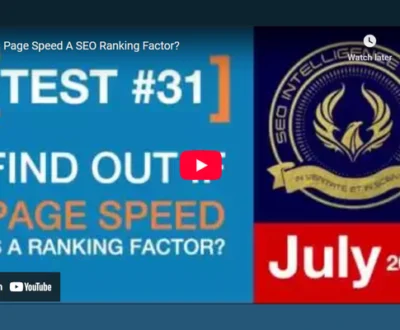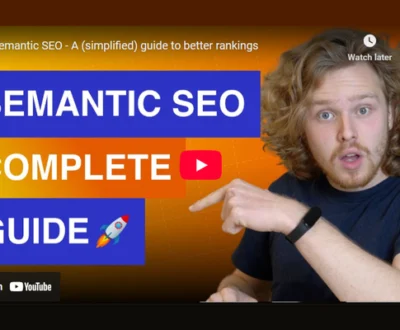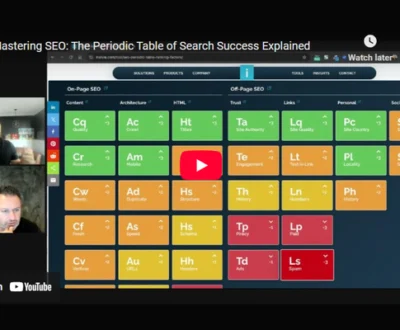I see why word count still matters in on-page SEO today because it helps content fully address user intent and cover topics in enough detail. Longer content often supports better engagement and site structure through internal links, but quality matters more than length alone. It’s important to balance depth with readability and avoid filler that dilutes value. Tailoring word count to specific content types guarantees visitors get useful information while aligning with changing search algorithms. You can explore how to optimize this further ahead.
- Key Takeaways
- Understanding the Role of Word Count in SEO
- How Content Quality Influences Word Count Effectiveness
- Meeting User Intent With Appropriate Content Length
- Recommended Word Counts for Different Content Types
- Balancing Content Depth and Readability
- Avoiding Common Word Count Mistakes in SEO
- Adapting Word Count Strategies for Evolving Search Algorithms
- Frequently Asked Questions
- Final Thoughts
Key Takeaways
- Word count enables comprehensive coverage of topics, fulfilling complex user search intent effectively.
- Longer content creates more internal linking opportunities, enhancing site structure and SEO.
- Analyzing competitors’ word counts uncovers content gaps to improve relevance and depth.
- Higher word counts often correlate with better user engagement metrics like time on page and shares.
- Balancing word count with quality ensures content remains valuable and readable, avoiding filler or verbosity.
Understanding the Role of Word Count in SEO
Word count plays an essential role in on-page SEO by helping content fully address the search intent behind user queries.
When I consider SEO strategies, I see that longer content allows for thorough coverage of complex topics, especially when dealing with long-tail keywords that need detailed explanations. By increasing word count, I can naturally incorporate relevant keywords and related questions, which enhances the content’s semantic richness and improves topical authority.
Analyzing competitor word counts also reveals content gaps, guiding me to provide more complete answers than others. Additionally, higher word counts create opportunities for internal linking, which supports site structure and crawlability. User engagement signals such as comments and shares further influence how Google ranks content by indicating relevance and quality.
Ideal word count varies by content type; for example, pillar pages often require thousands of words, while product descriptions need fewer.
Ultimately, balancing word count with content relevance is crucial for effective SEO strategies, as it directly influences how well a page satisfies search intent and performs in search engine results.
How Content Quality Influences Word Count Effectiveness
Increasing the amount of content on a page can improve SEO results, but only when the quality supports that length. I’ve found that content relevance plays a vital role in making word count effective. Simply adding words isn’t enough; the information must be thorough and directly address the topic.
When you naturally integrate keywords, maintaining appropriate keyword density, you enhance the content’s SEO value without risking penalties for stuffing. Quality content also engages readers better, reducing bounce rates and encouraging longer visits, which signals to search engines that your page is valuable. Engagement signals, such as time spent on the page and shares, are important factors that influence rankings alongside content quality.
Additionally, extensive coverage allows you to answer user questions fully, increasing trust and authority. In contrast, lengthy but shallow content can confuse visitors and harm your rankings.
Meeting User Intent With Appropriate Content Length
To meet user intent effectively, I focus on matching content length with the type of search—longer for detailed information and shorter for quick decisions.
It’s important to balance depth with brevity, ensuring the content fully answers questions without overwhelming readers.
This approach not only improves user satisfaction but also enhances SEO performance.
Content Length and Intent
Although many SEO strategies highlight content length, the key factor is aligning that length with user intent. When I develop a content strategy, I focus on understanding what users truly seek.
For example, quick answers require concise content, while complex topics call for detailed explanations. Listening to user feedback helps me adjust the depth and length to meet their needs effectively.
Search query analysis guides these decisions, ensuring the content provides value without unnecessary filler. This approach not only satisfies users but also improves engagement metrics, which are critical for SEO success.
Ultimately, tailoring content length to user intent creates a more relevant experience and supports better search rankings, proving that quality and alignment matter more than just hitting a word count target.
Balancing Depth and Brevity
When content meets user intent, balancing depth and brevity becomes essential for effective SEO. A solid content strategy blends thorough information with concise delivery, enhancing user engagement without overwhelming readers.
SEO trends show that articles around 1,500 to 2,000 words often hit the sweet spot, optimizing keyword relevance and readability factors. Audience targeting guides format variability, ensuring content matches expectations—whether a quick FAQ or an in-depth guide.
Content optimization involves structuring multilayered headings and incorporating visuals to maintain interest and clarity. Overly long posts risk losing focus, while too-short pieces may lack authority.
Recommended Word Counts for Different Content Types
Since different types of content serve distinct purposes, their recommended word counts vary accordingly.
For example, blog posts generally perform best within 1,000 to 1,500 words, striking a balance between detail and readability standards.
Pillar pages demand more depth, often exceeding 3,000 words, to thoroughly cover broad topics.
Meanwhile, general web pages should stay concise, with 200 to 400 words focused on key messages to maintain user engagement.
Product descriptions, critical in e-commerce, are most effective when brief—around 50 to 250 words—using bullet points to enhance clarity.
Landing pages usually require 400 to 1,000 words, depending on complexity, while local pages range from 300 to 800 words to target specific audiences.
Understanding these ideal lengths helps tailor content types to user needs, improving engagement and SEO effectiveness by meeting both readability standards and search intent without unnecessary filler.
Balancing Content Depth and Readability
I’ve found that striking the right balance between content depth and brevity is key to keeping readers engaged without overwhelming them.
Providing thorough information helps build authority, but too much detail can make the content hard to follow.
Depth Versus Brevity
Although diving deep into a topic often means using more words, I’ve found that balancing thoroughness with readability is essential for effective SEO content. Content strategies must consider user preferences to create material that is both detailed and accessible. Here’s a quick comparison:
| Aspect | Depth | Brevity |
|---|---|---|
| Word Count | Higher for thorough coverage | Lower for quick reads |
| User Engagement | Longer time on page | Faster consumption |
| SEO Benefit | More backlinks and authority | Lower bounce rates |
| Readability | Requires clear structure | Easier to scan |
| Content Use | In-depth guides and analyses | FAQs and summaries |
Striking this balance improves user experience and supports SEO goals by offering extensive yet digestible content.
Enhancing User Engagement
When you balance content depth with readability, you create material that keeps readers engaged without overwhelming them.
Using readability metrics helps me guarantee sentences are clear and paragraphs well-organized, which improves user retention. Since 86% of users prefer readable websites, focusing on simplicity reduces bounce rates and encourages visitors to stay longer.
I structure content with subheadings and bullet points so readers can quickly scan for key information, which aligns with how most people consume web content.
This approach not only supports accessibility for diverse audiences but also boosts SEO by increasing dwell time and pages per session.
Avoiding Common Word Count Mistakes in SEO
Since many SEO practitioners fixate on hitting a specific word count, they often overlook the deeper issues that affect content quality and effectiveness. One of the most common pitfalls is falling for length misconceptions, assuming longer content automatically ranks better. This leads to unnecessary wordiness, which can reduce reader engagement and obscure key messages.
Conversely, ignoring word count altogether risks creating thin content that lacks sufficient depth or value. It’s important to balance content length by considering audience expectations and the topic’s complexity. Content should be detailed enough to satisfy user intent but concise enough to remain digestible.
Avoiding these mistakes means focusing on substance over filler and ensuring each word adds value. By doing so, you prevent the trap of prioritizing quantity over quality, which search engines increasingly recognize.
Ultimately, understanding these common pitfalls helps you craft effective SEO content that meets both user needs and ranking criteria.
Adapting Word Count Strategies for Evolving Search Algorithms
Overemphasizing word count in SEO can distract from how search algorithms actually evaluate content today. Instead, I focus on balancing word count with user experience by providing content that is both detailed and easy to understand. Search engines now value semantic SEO and relevance, rewarding content that meets user needs without unnecessary length.
Here’s a quick look at how adapting word count strategies fits evolving search algorithms:
| Focus Area | Word Count Role | Impact on User Experience |
|---|---|---|
| Content Quality | Supports depth, not length | Keeps users engaged |
| Semantic SEO | Uses related terms over keywords | Enhances relevance |
| Brevity vs Detail | Balances thoroughness and clarity | Improves readability |
| Algorithm Changes | Prioritizes extensive info | Meets search intent |
| User Engagement | Adjusts length for topic depth | Increases time on page |
Frequently Asked Questions
How Does Word Count Impact Page Loading Speed and SEO?
I’ve noticed that higher word counts can increase loading time, but if you focus on content quality and optimization, you can keep pages fast and SEO-friendly, balancing detailed info with smooth user experience.
Can Word Count Affect Mobile Search Rankings Differently?
Think of mobile optimization as a garden—word count alone won’t make it flourish. I believe a smart content strategy, focusing on relevance and readability, nurtures growth equally across devices, including mobile search rankings.
Does Word Count Influence Voice Search Optimization?
I’ve found that word count influences voice search by supporting content depth, which voice assistants prefer. Longer, detailed content answers natural language queries better, improving your chances of being featured in voice search results and boosting visibility.
How to Measure the Ideal Word Count for Local SEO Pages?
Think of local SEO like baking a cake—I measure ideal word count by balancing local keyword density with content relevance, checking competitors, and ensuring my page delivers just enough detail without overwhelming readers or triggering thin content flags.
Are There Tools to Analyze Word Count Effectiveness Automatically?
Yes, I use word count tools that offer automated content analysis, tracking keyword density, readability, and even competitor benchmarks. They give real-time feedback, helping me optimize content efficiently without guessing word count effectiveness manually.
Final Thoughts
In my experience, word count remains an essential variable in on-page SEO, shaping search success through strategic, sensible sizing. Striking a balance between brevity and breadth benefits both bots and browsers, building better rankings and boosting reader retention. While quality content commands attention, careful consideration of content length complements clarity and context. By consistently calibrating your word count with user intent and evolving algorithms, you can confidently craft content that captures clicks and creates meaningful engagement.
Windee Tan is a seasoned SEO Specialist with over a decade of experience helping businesses grow their organic visibility through data-driven strategies. He specializes in technical SEO, content optimization, and local search, with deep knowledge of tools like GA4, GSC, SEMrush, and Screaming Frog. Windee is passionate about translating complex SEO insights into practical tactics that drive real-world results. When he's not auditing sites or crafting keyword strategies, he’s exploring the latest trends in AI, digital marketing, and productivity.
About this blog
We are a digital marketing company with a focus on helping our customers achieve great results across several key areas.
Request a free quote
We offer professional SEO services that help websites increase their organic search score drastically in order to compete for the highest rankings even when it comes to highly competitive keywords.
Subscribe to our newsletter!
More from our blog
See all postsRecent Posts
- Step-by-Step Keyword Research for Affiliate Marketers 1 November 2025
- How to Do Keyword Research for Multilingual SEO? 20 October 2025
- Writing Clear Calls to Action That Boost On-Page SEO 21 August 2025









